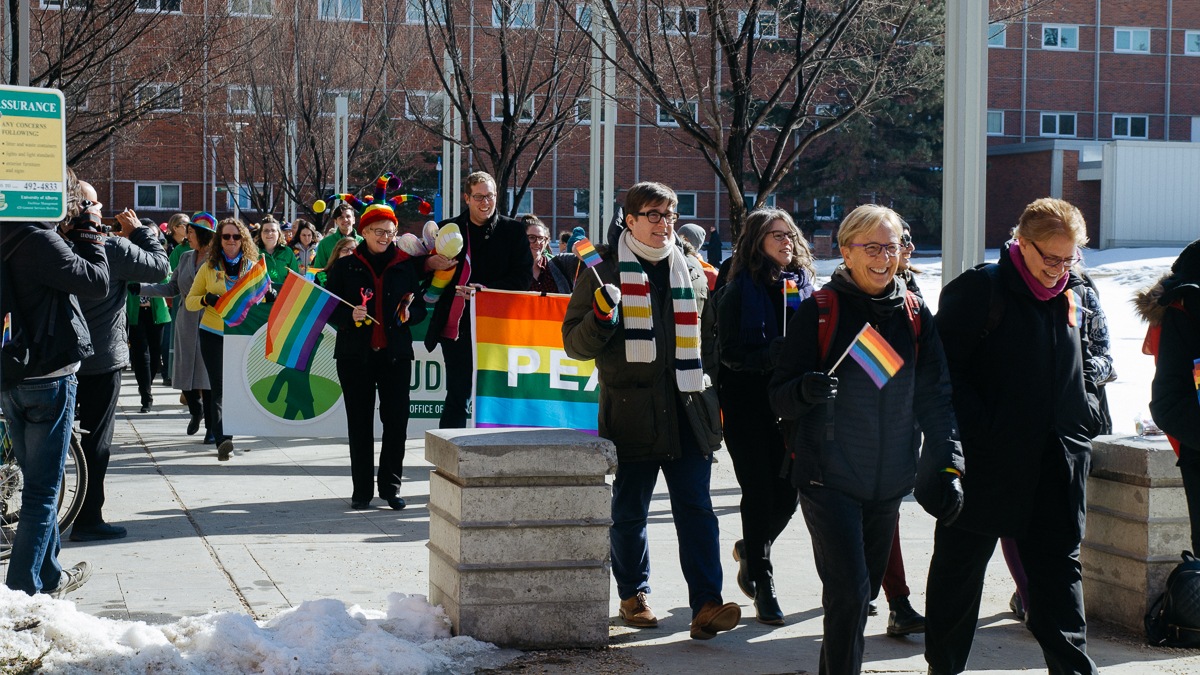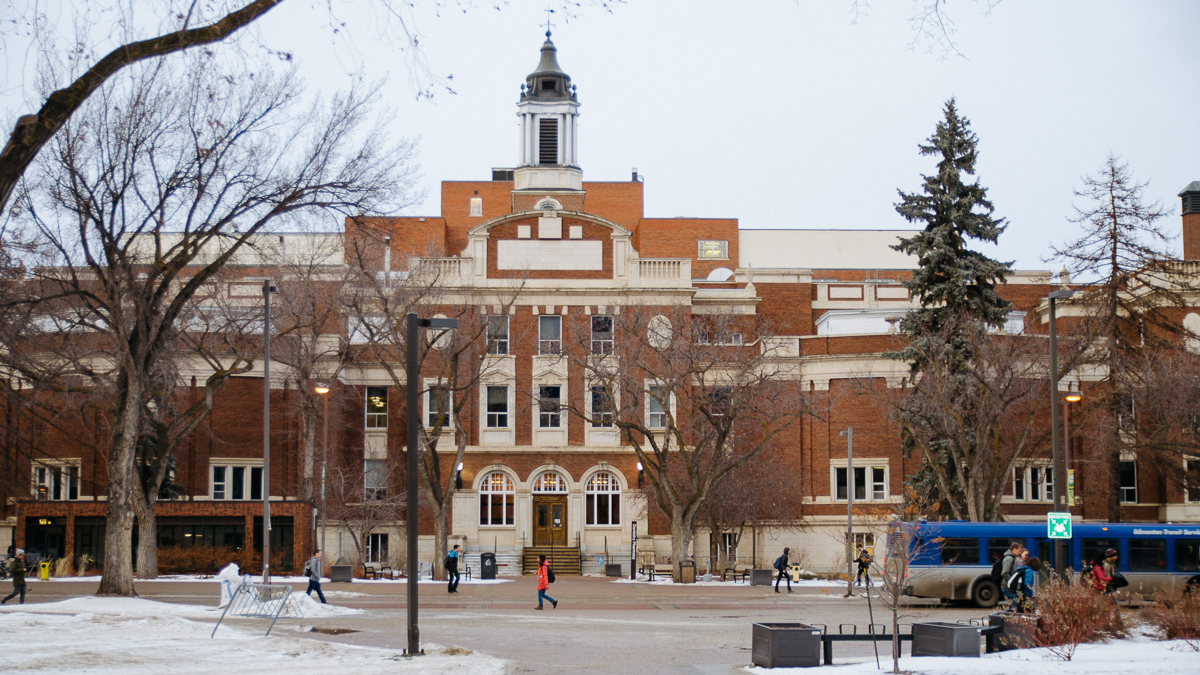Pride parade returns after a year’s hiatus
 Nathan Fung
Nathan FungWith party horns and pride flags in hand, students and university staff marched across campus on Wednesday to demonstrate their acceptance of the LGBTQ community.

About 300 people participated in this year’s pride parade, as volunteers handed out rainbow and transgender flags to participants. The march began by the Centennial Centre of Interdisciplinary Science and passed through the Students’ Union Building and Rutherford Library before ending at the PAW Centre.
One of the main organizers of this year’s pride parade was Nicholas Ternes, who works for the Non-Academic Staff Association. In his speech just before the march began, he said that while people might see pride as a “relic of a less tolerant time when the LGBTQ2S+ community had to stand up for their rights,” such events are still necessary for those who face discrimination.
“Pride is important because it celebrates how far we have come but it is also important because it reminds everyone that there is still a long way to go,” Ternes said. “It’s about creating visibility and a sense of belonging for people who may not have it.”

Ternes said there wasn’t a pride parade last year because no one was available to organize it, which was one of the reasons he was happy to organize it this year.
“I’m very happy that this worked out the way it did, we had great numbers with lots of energy, everyone came out in colours, I had no idea it’d be that bright.”

For some students, like third-year Modern Languages and Cultural Studies student Rosey Eberlein and fourth-year linguistics student Kasia Garbowska, this was their first time taking part in a pride parade.
“It was amazing, and I think I did my part in making enough noise,” Eberlein said.
“Seeing a lot of people gathered in one area to celebrate is just incredible to see,” Garbowska added.

Also in attendance was the university’s Board of Governors Chair Michael Phair and Chancellor Douglas Stollery, who served as honorary parade marshals. Phair, who was one of the first openly gay politicians in the province, agreed with Ternes that pride events are still important.
“People need an opportunity to celebrate,” Phair said. “It also spreads among the general public that (the LGBTQ community is) part of the population, it’s part of the group that makes up the city, and I think that’s very important for everyone.”





